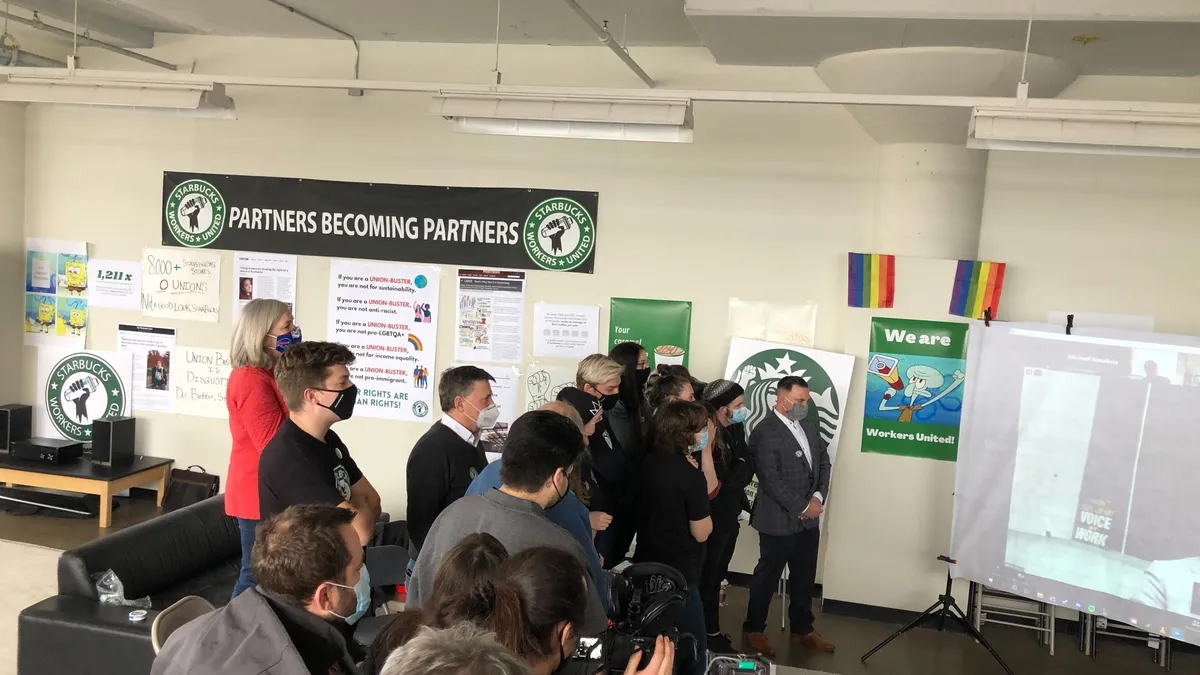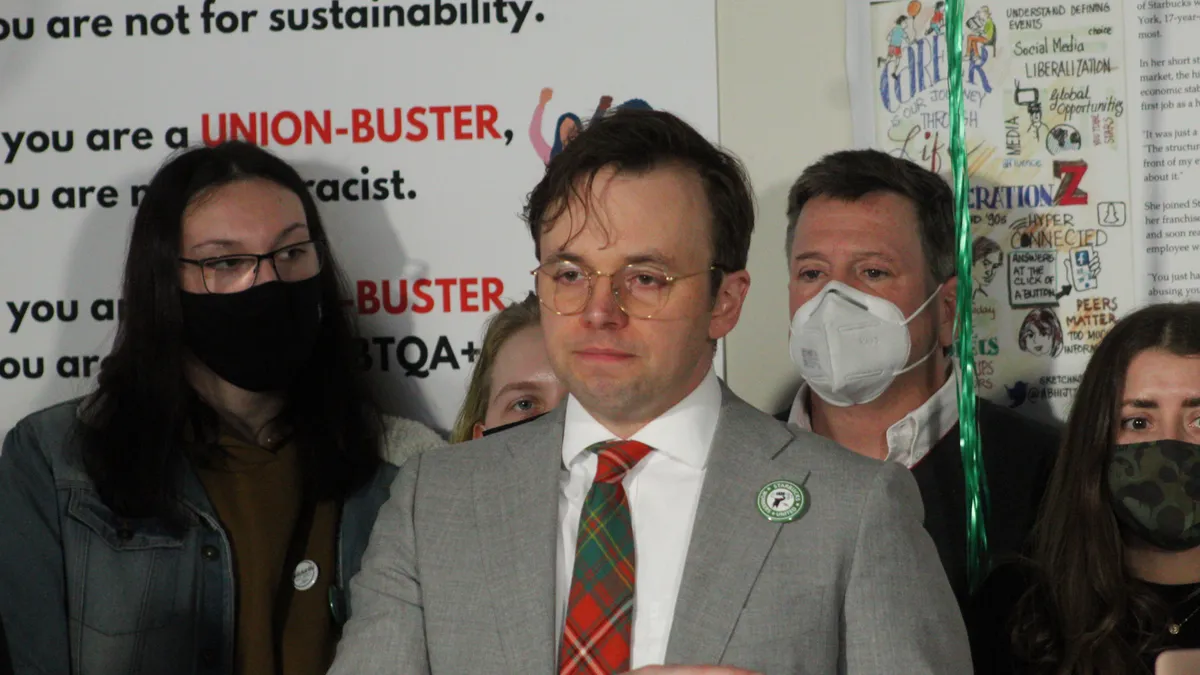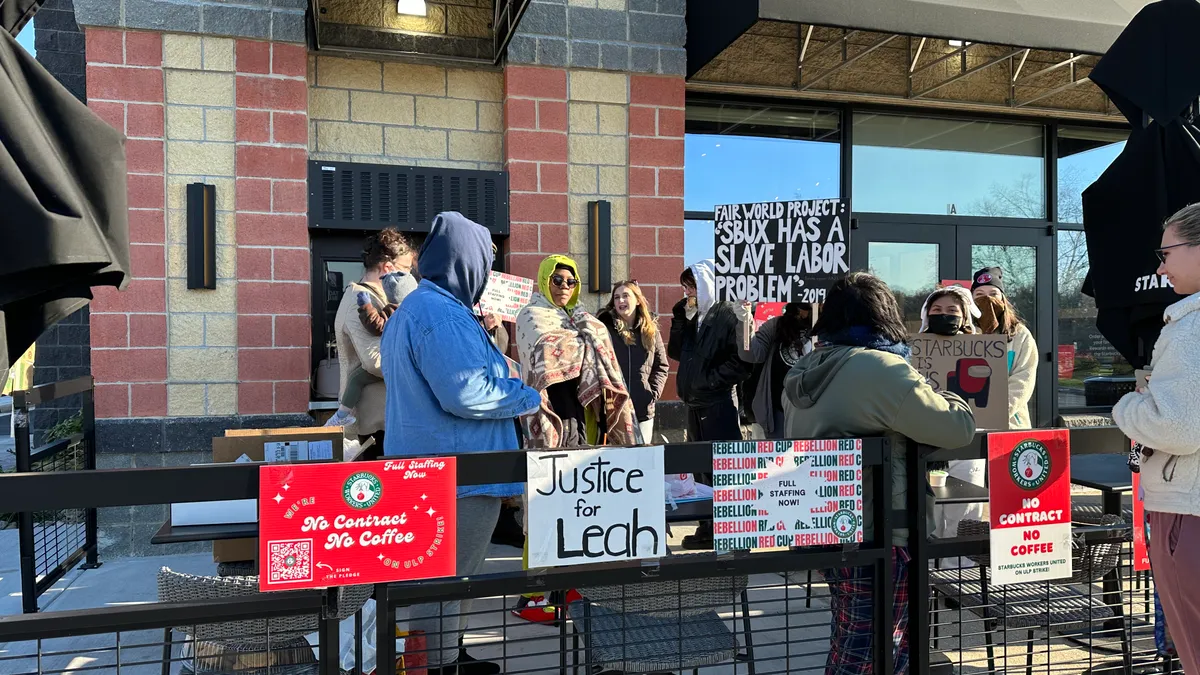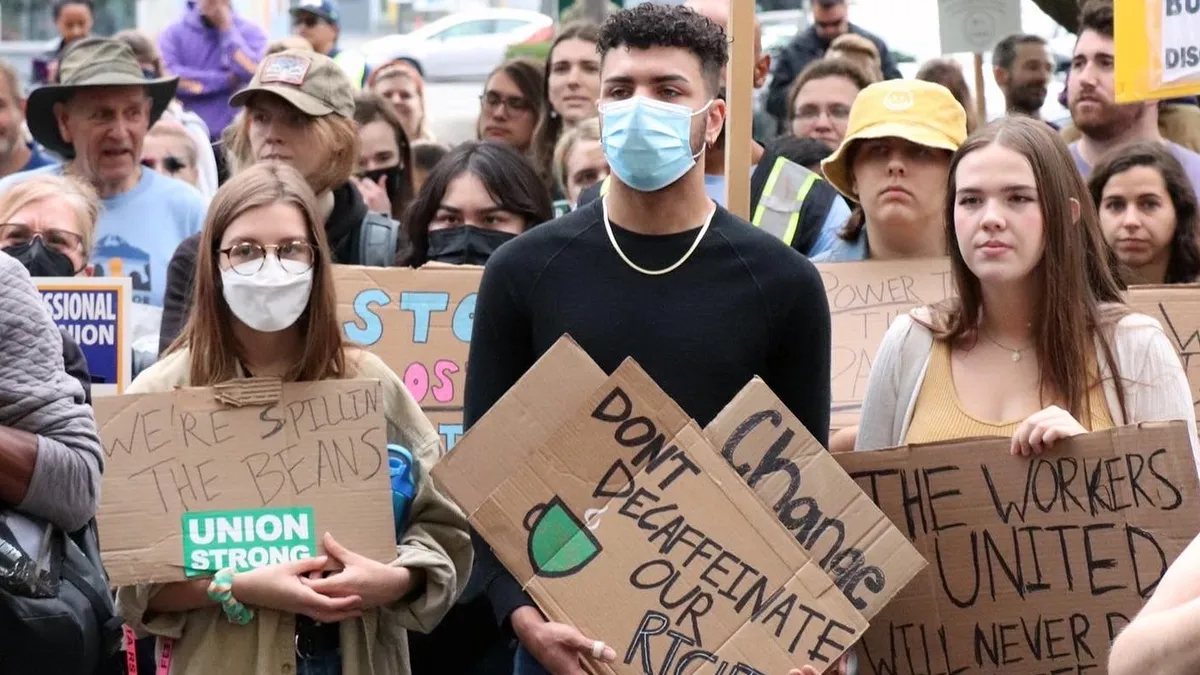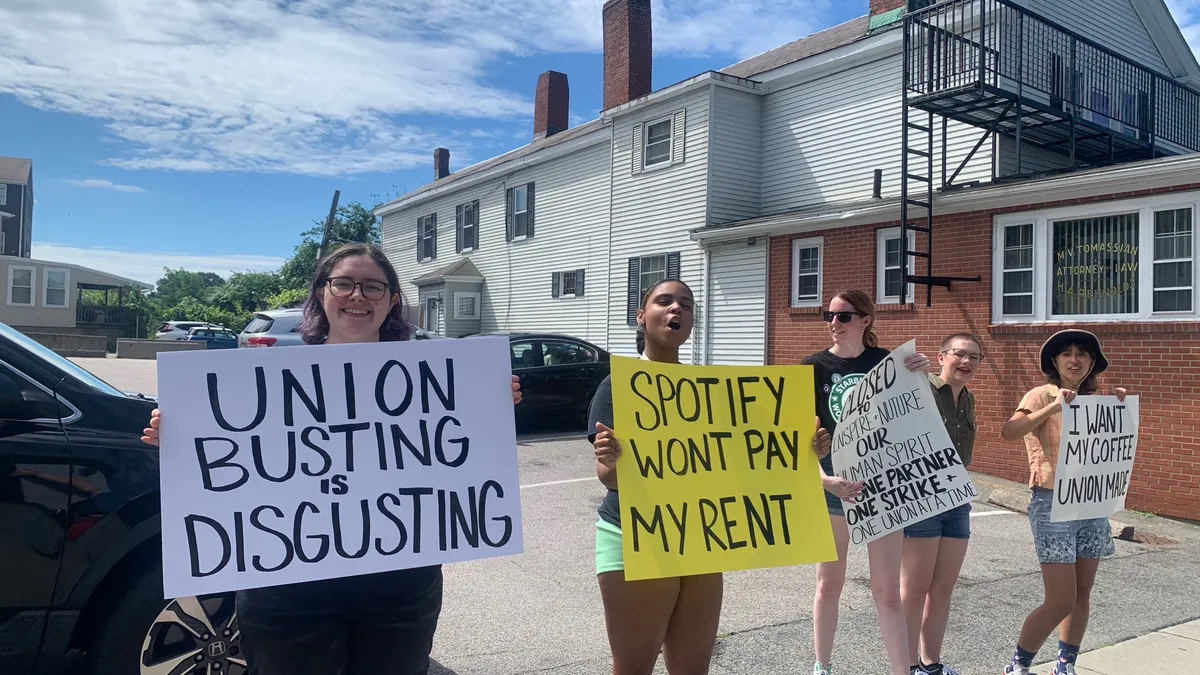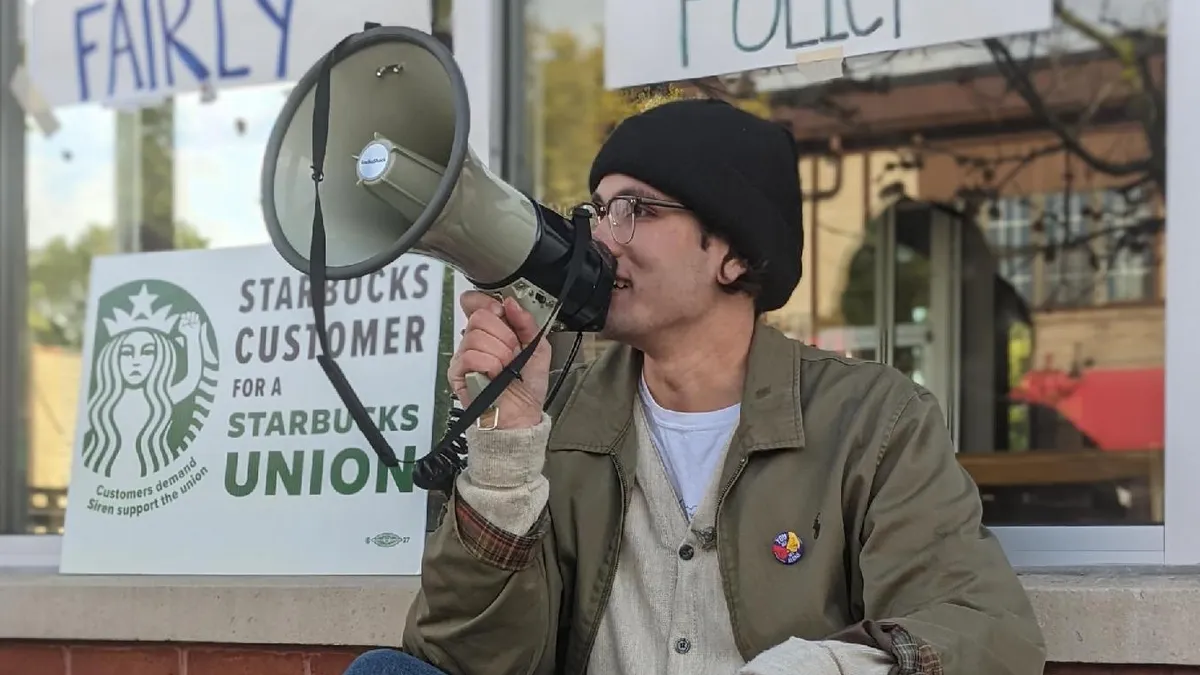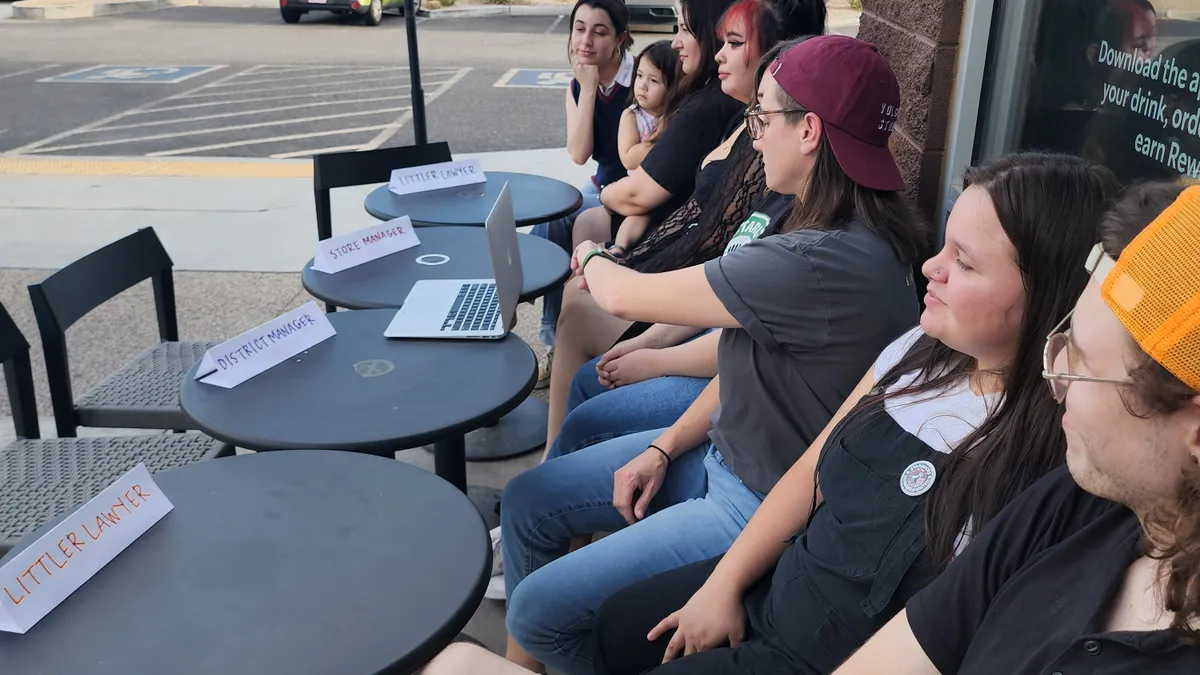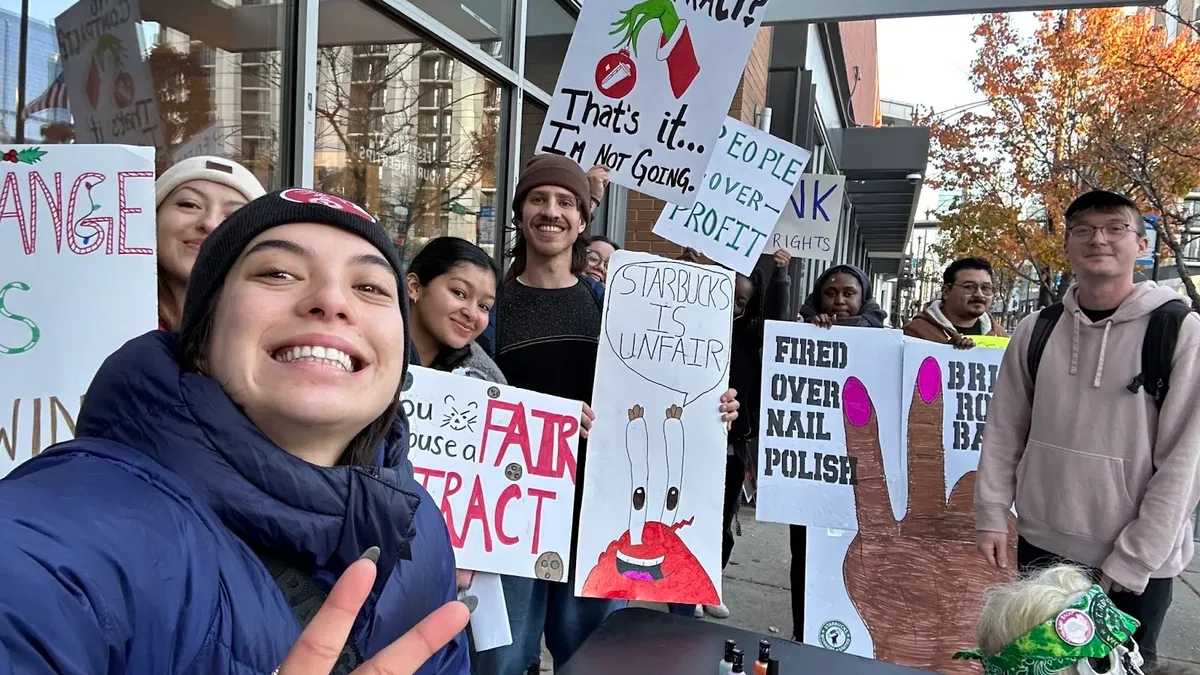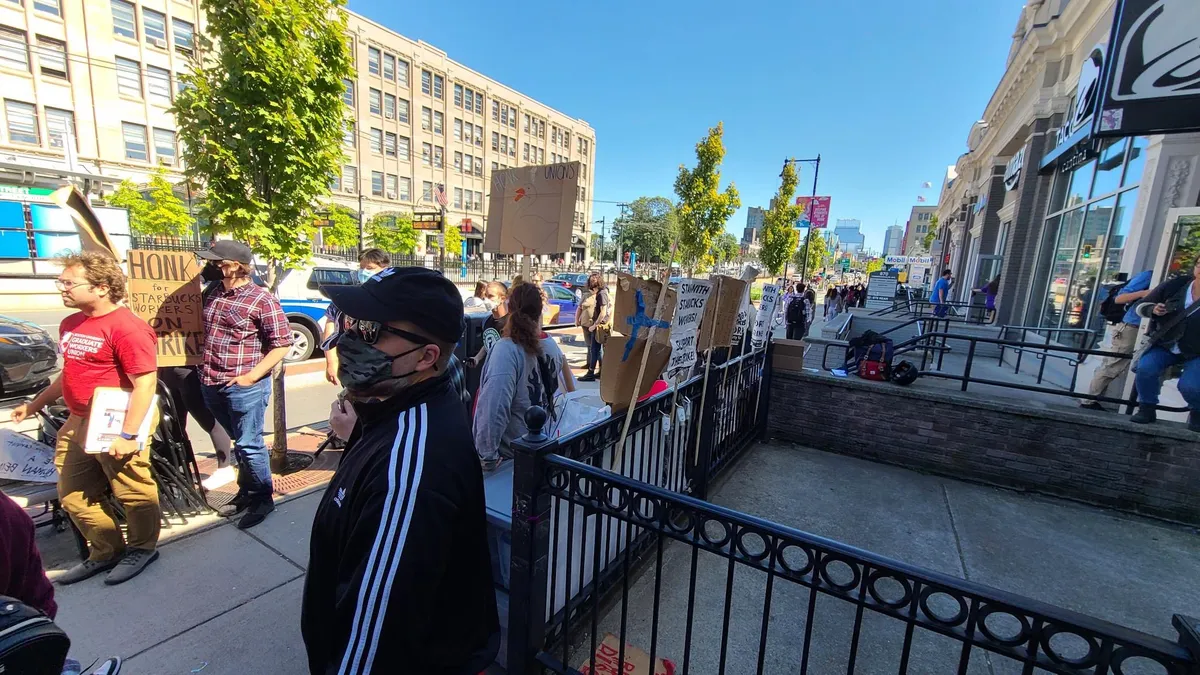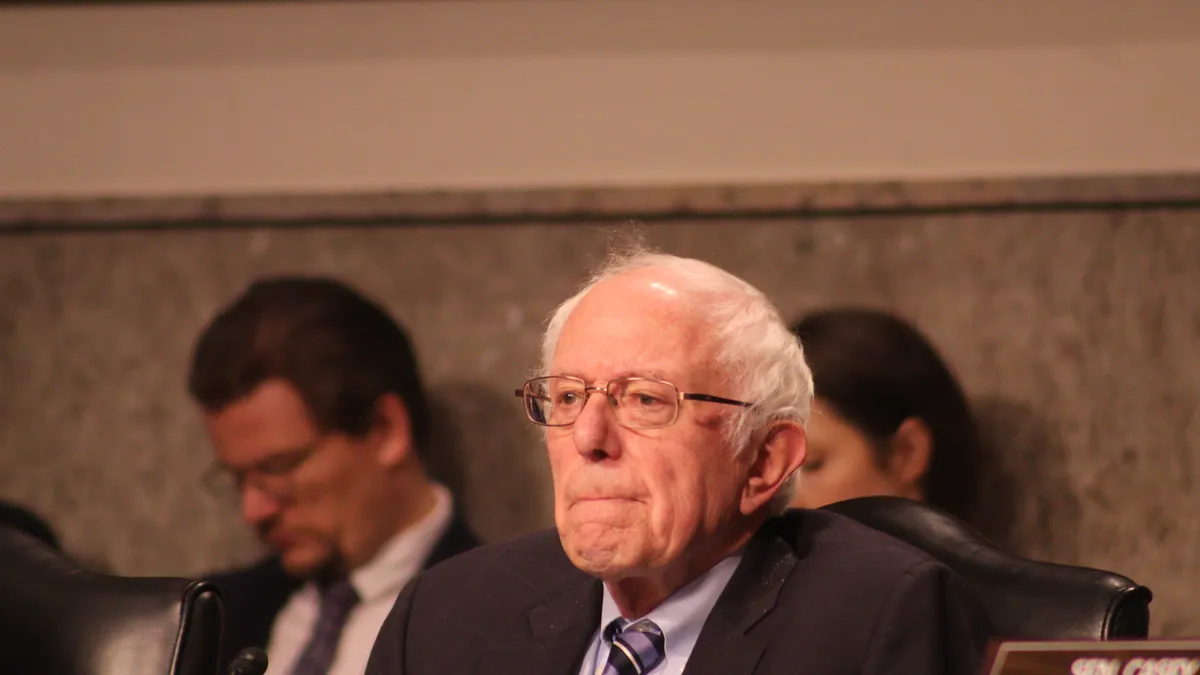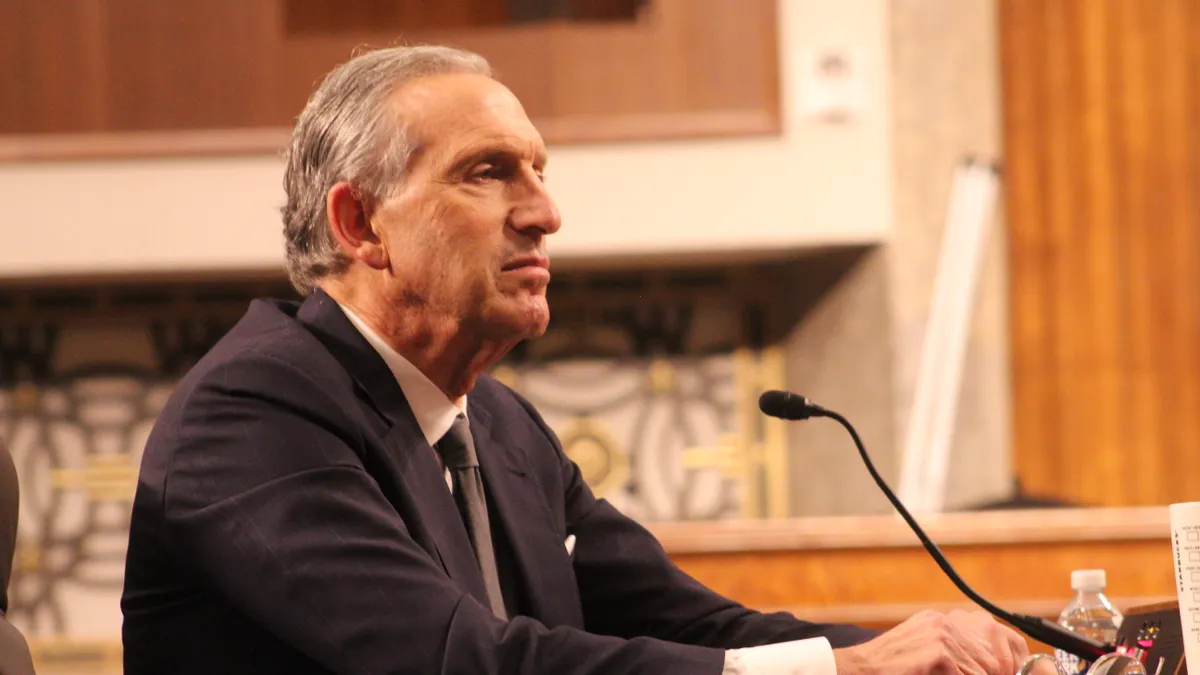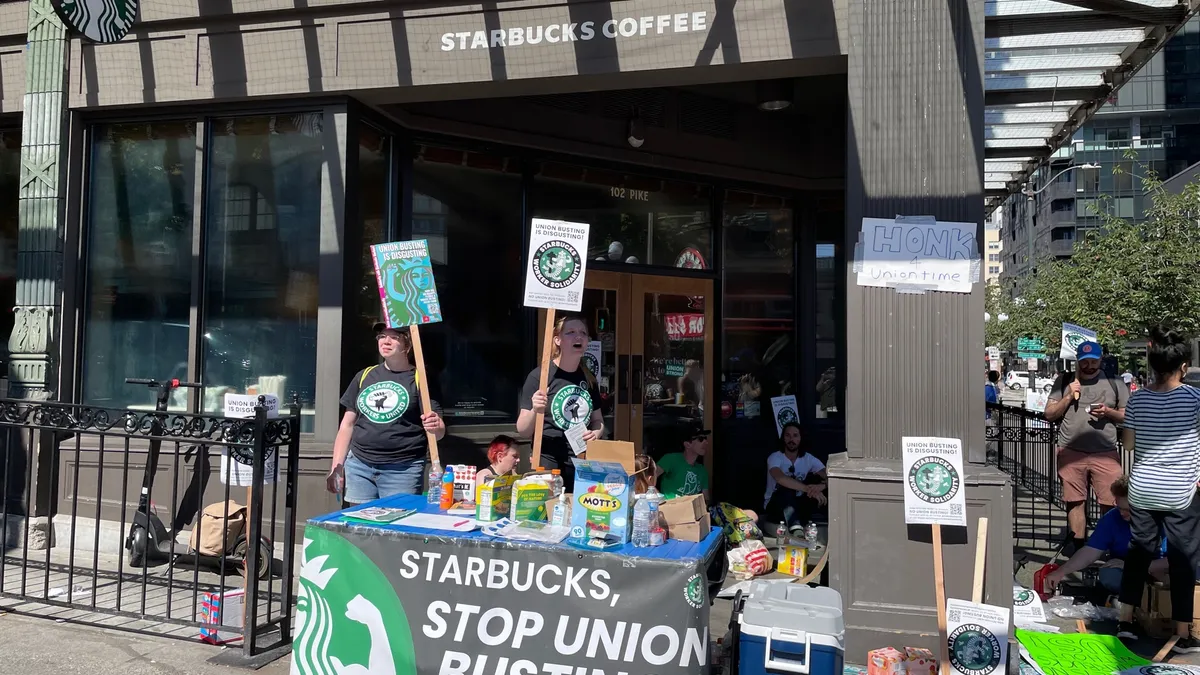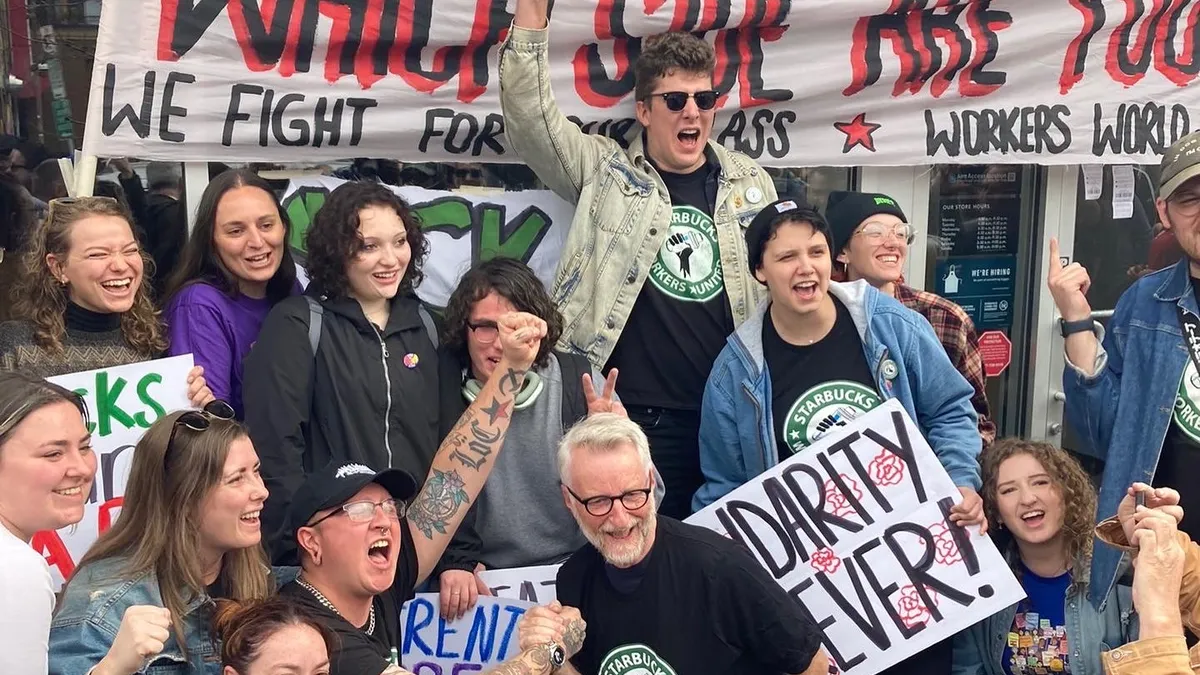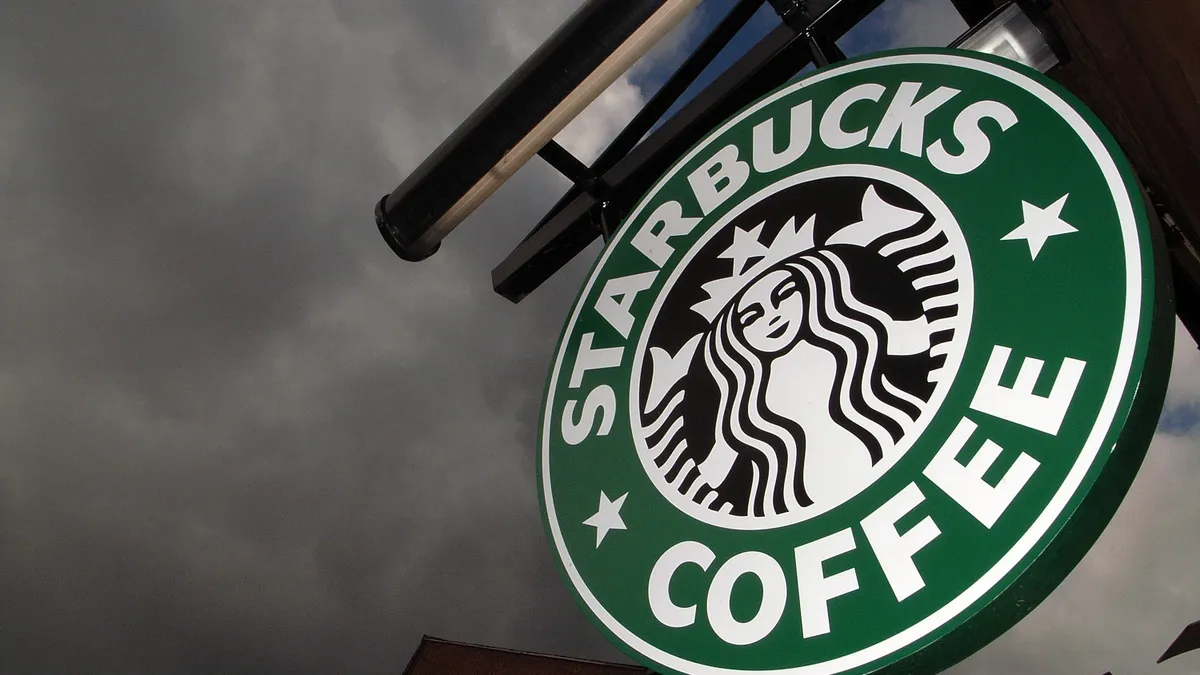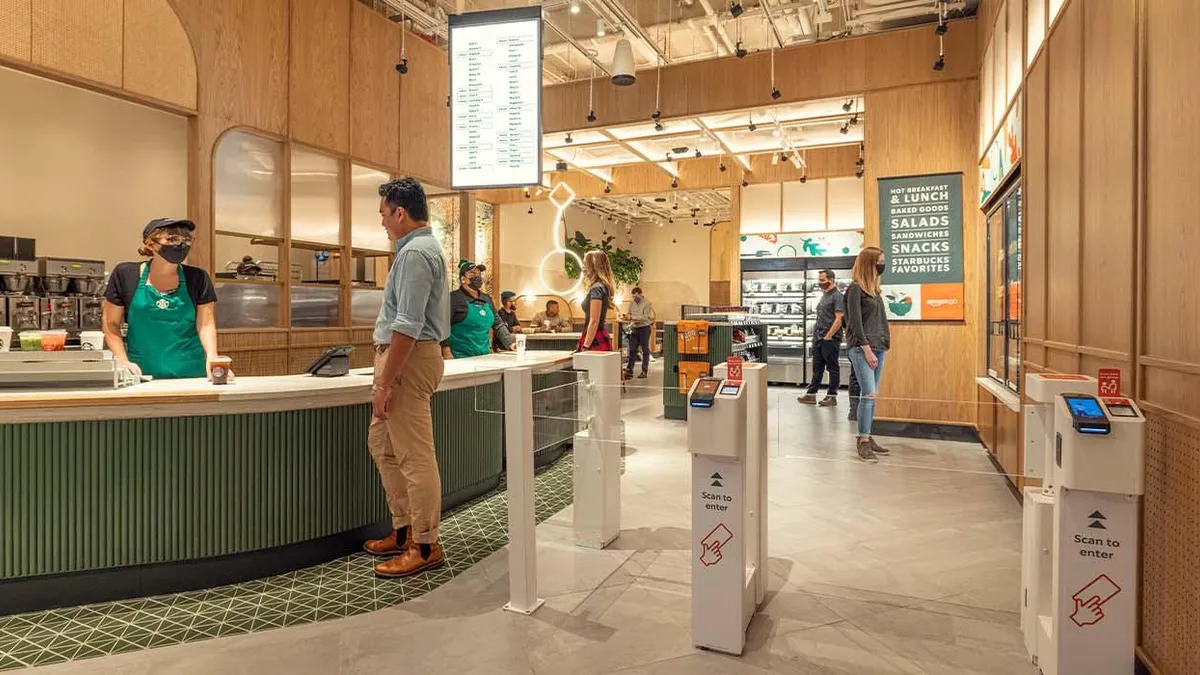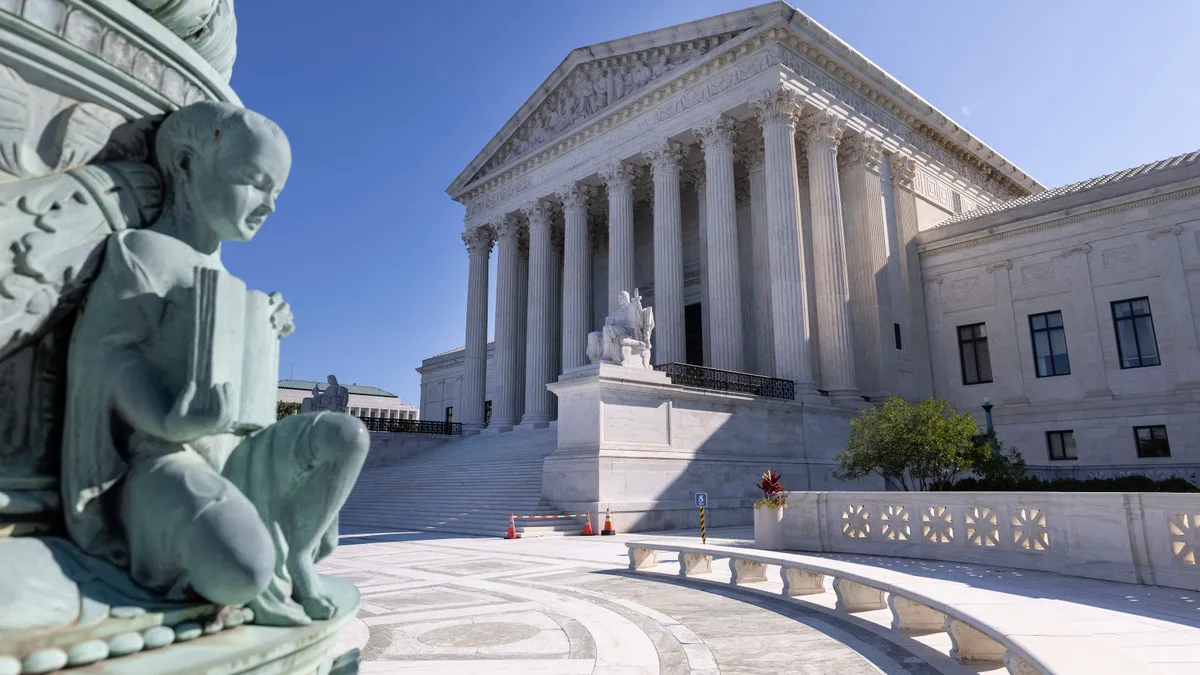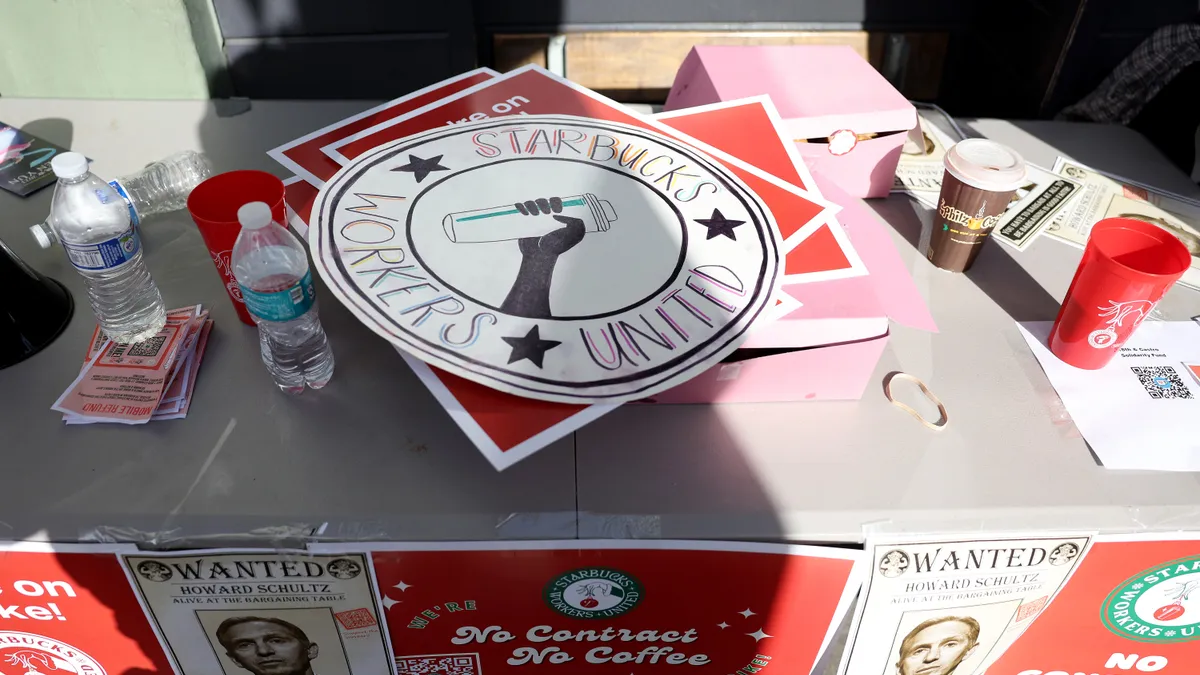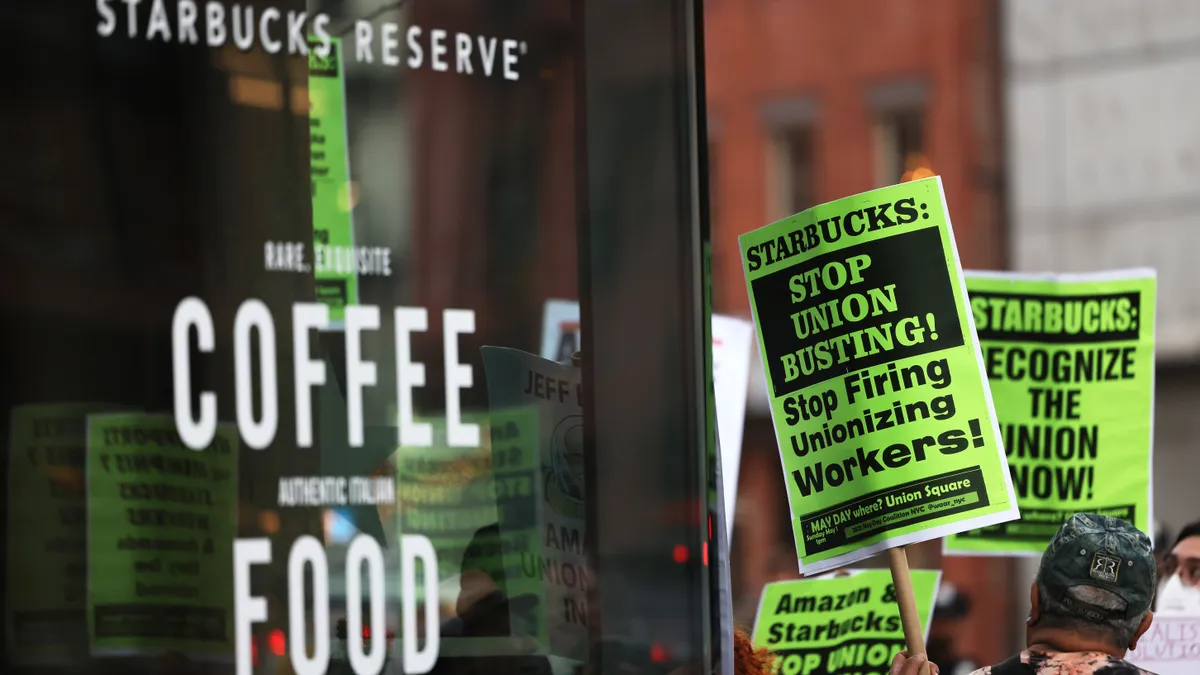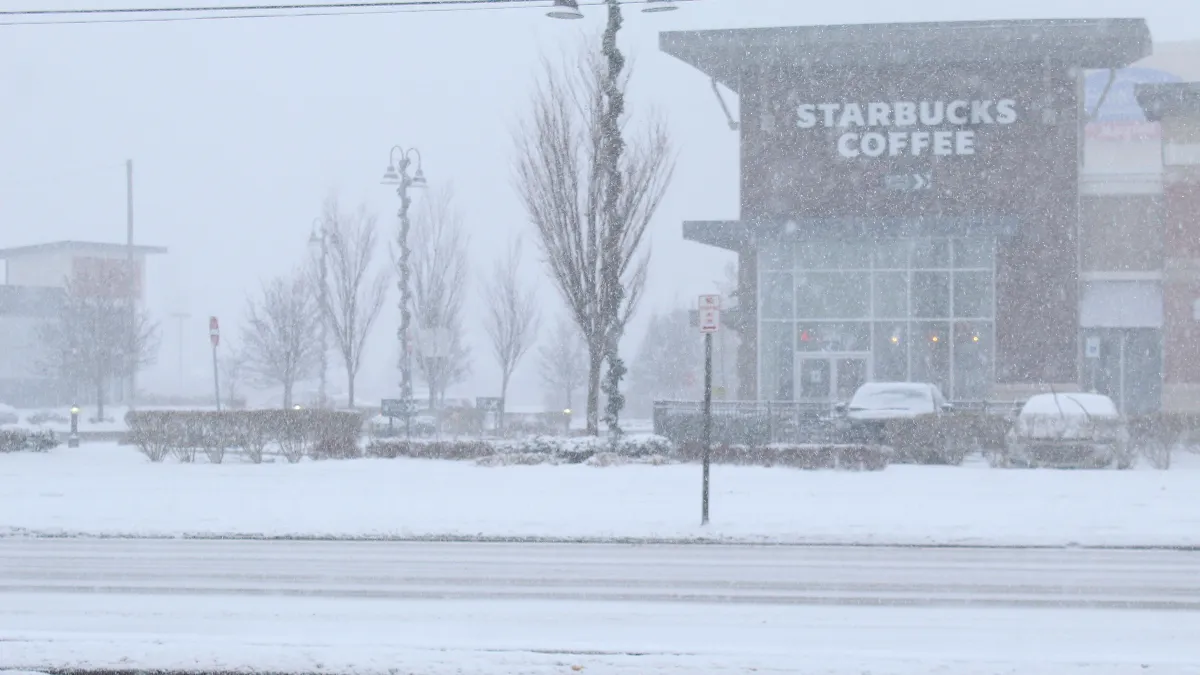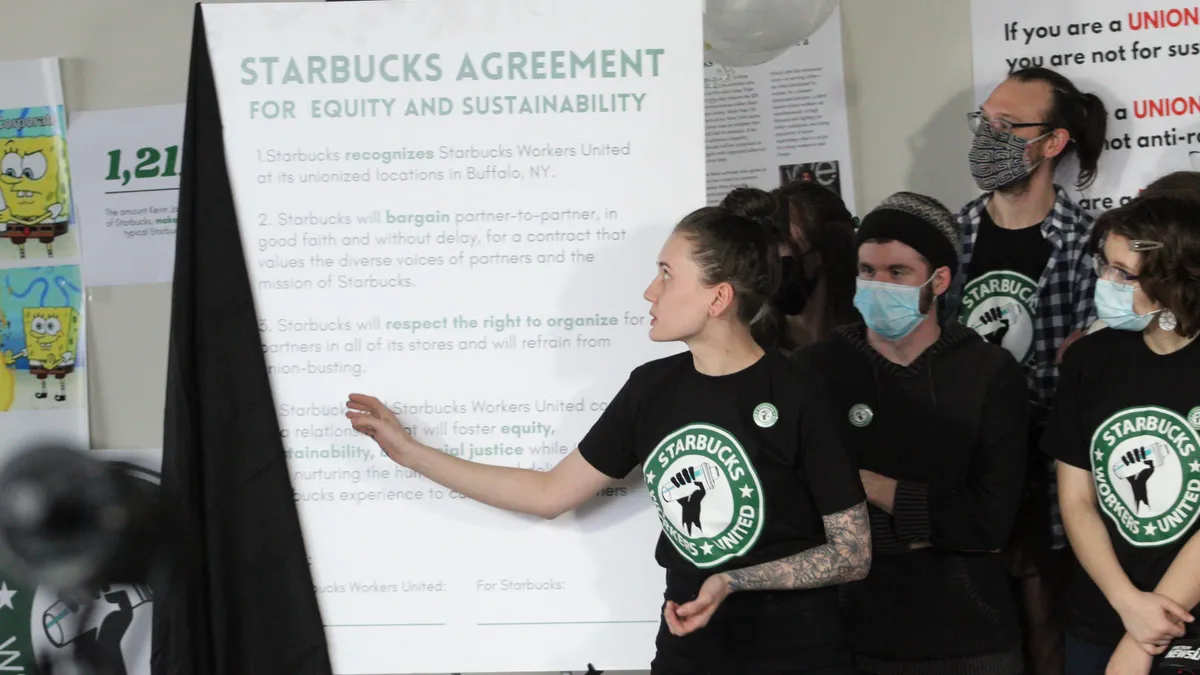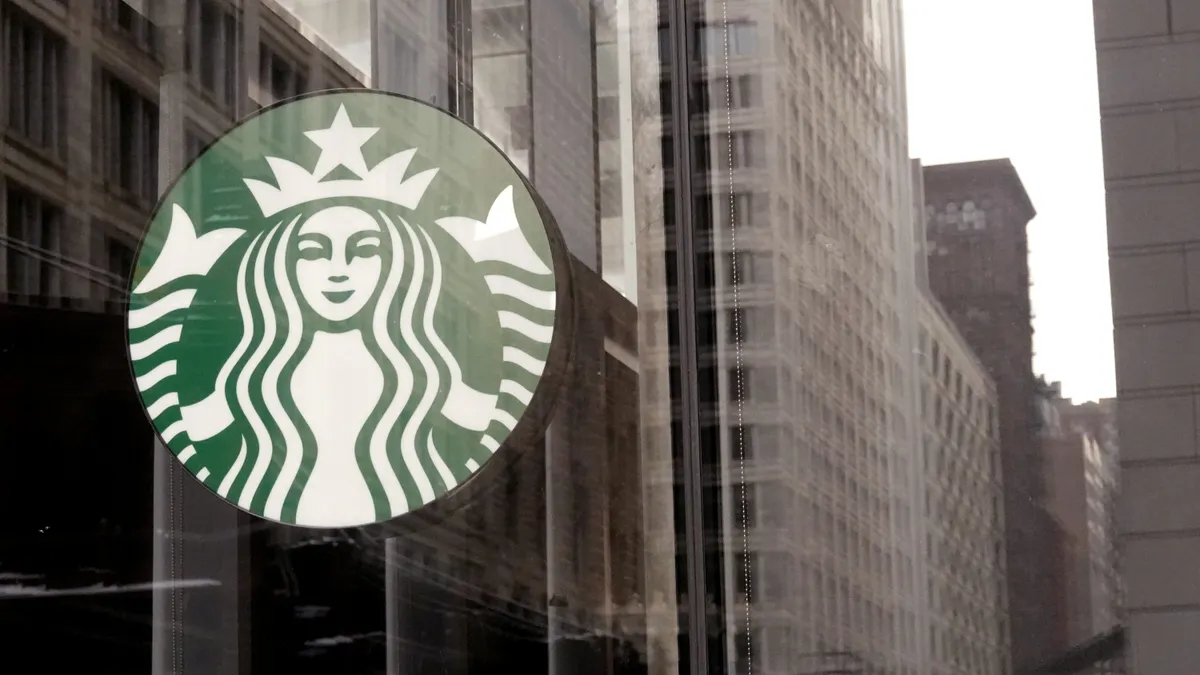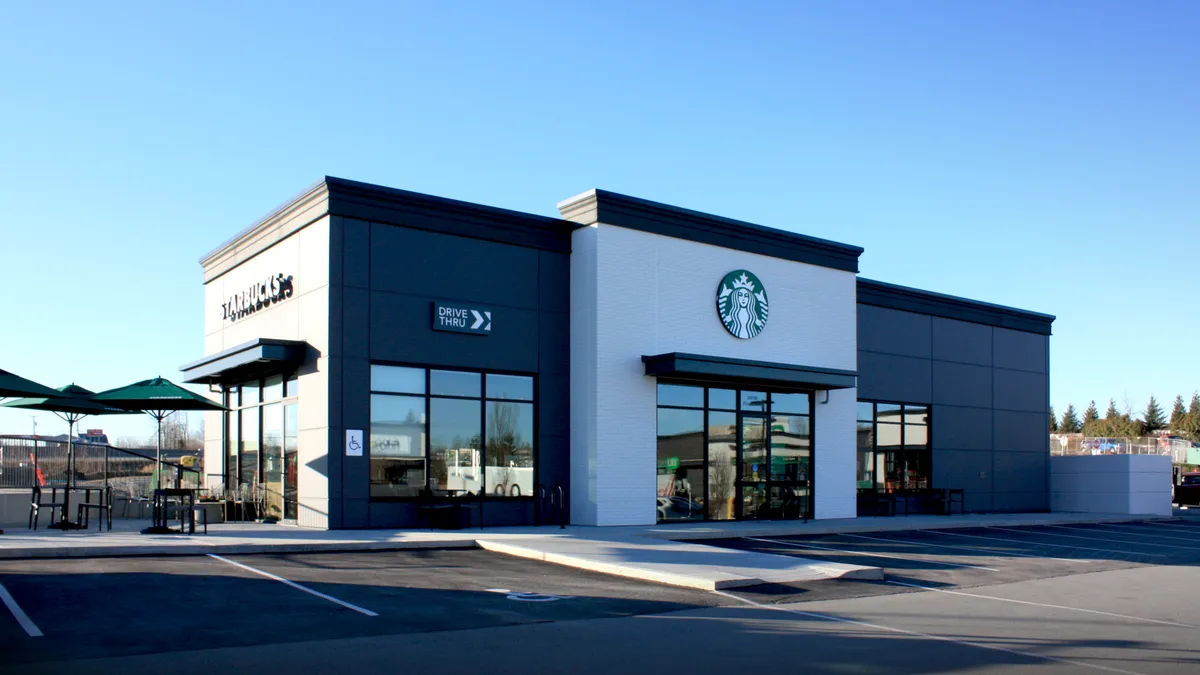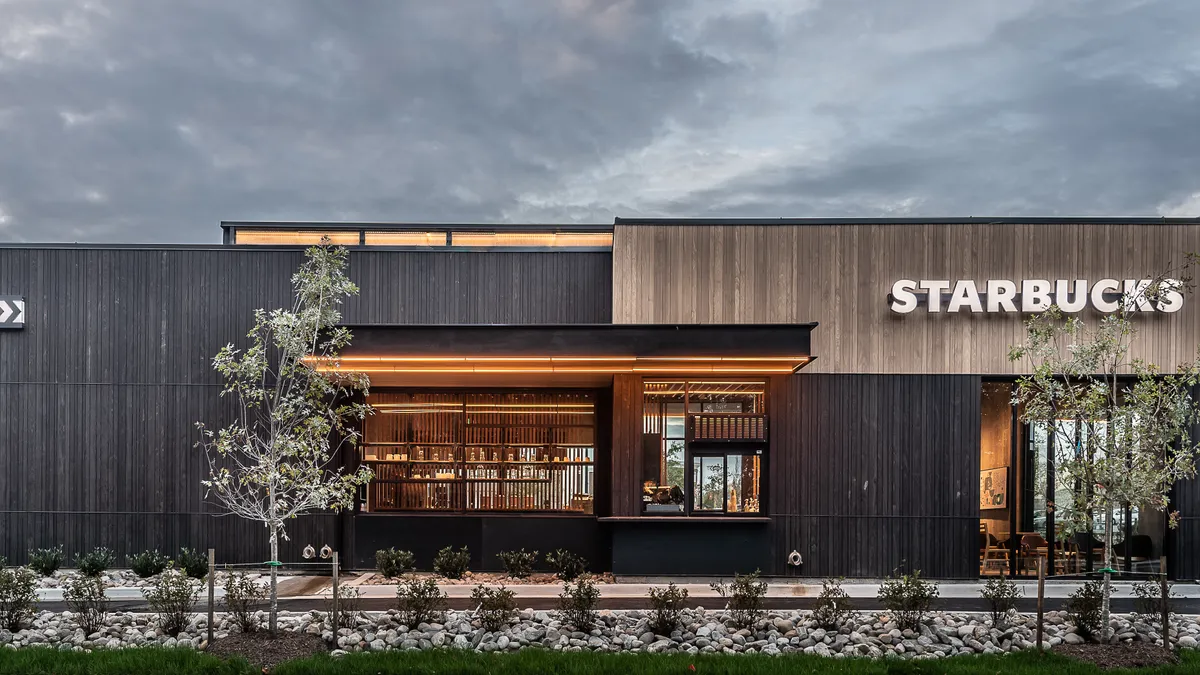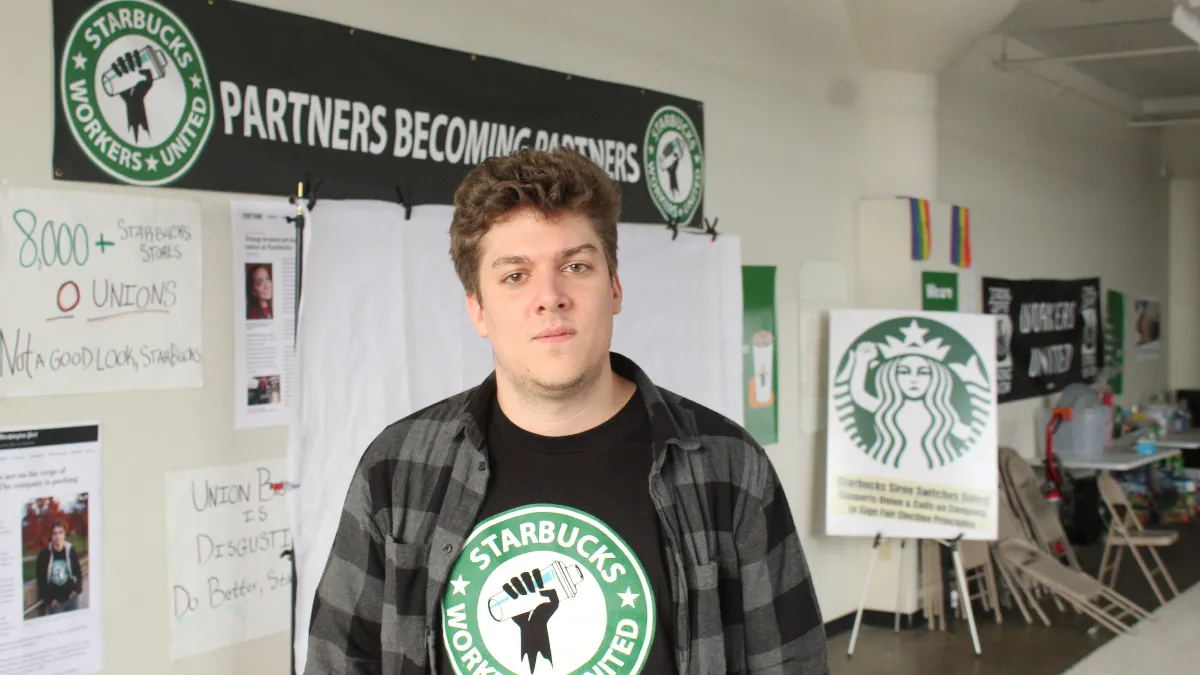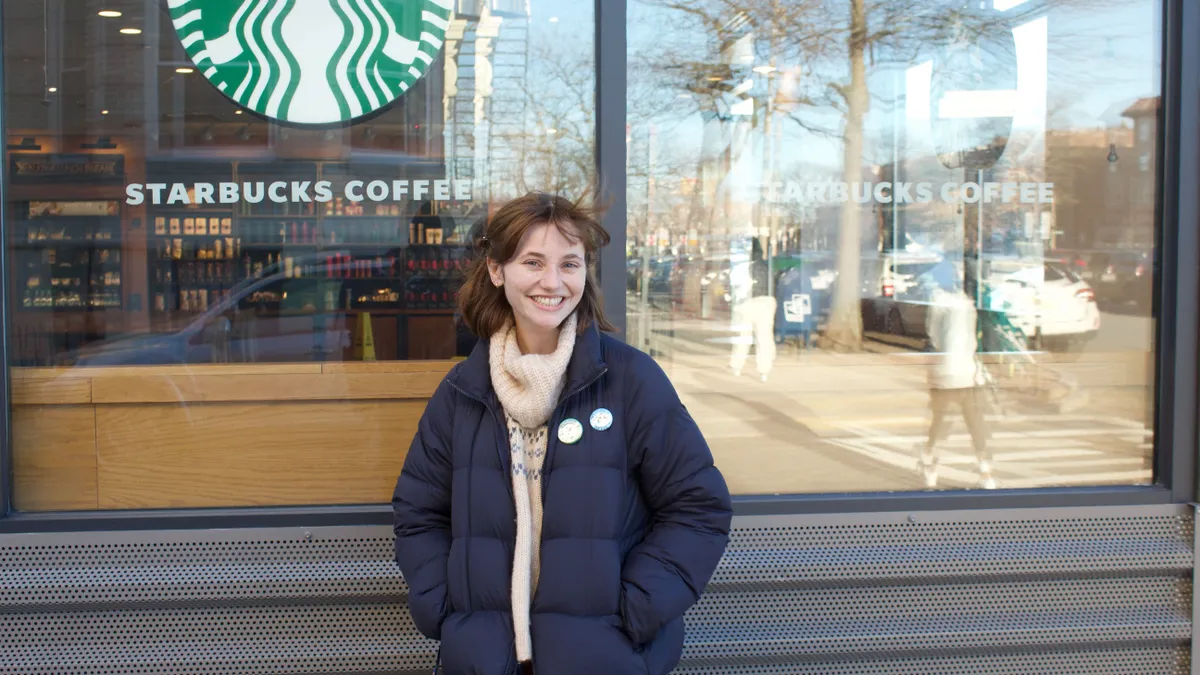Dive Brief:
- The Starbucks Workers United organizing committee won a majority in one of three New York Starbucks stores, voting in favor of unionization, as of press time. The Hamburg store voted against unionization, and no results are available yet for its Cheektowaga unit.
- Workers say they've faced down a months-long campaign of anti-union intimidation, including visits from senior executives, implicit threats to benefits and meetings where multiple managers pressured individual workers to vote against the union.
- The election could provide momentum to organizing at four other Starbucks stores that have petitioned for elections, and signals a shift in the balance of power within the QSR segment.
Dive Insight:
With the labor market tight and working conditions worsened by the pandemic, restaurant employees may be well-placed to win elections in workplaces once all but abandoned by the American Federation of Labor and Congress of Industrial Organizations (AFL-CIO).
The Starbucks workers technically voted in three separate elections, one at each store.
- At the Elmwood Avenue location in Buffalo, workers voted 19 to 8 in favor of the union, with 9 voters abstaining.
- At the Camp Road store in Hamburg, New York, workers voted 12 to 8 against the union, with 5 voters abstaining. Three votes at Camp Road were challenged and one was declared void.
- No results are available from a store on Genesee Street in Cheektowaga, New York, today. At that location, seven votes have been challenged as of press time. Out of 46 eligible voters, 15 voted yes and 9 voted no.
The union drive at these stores went public on Aug. 23, when the organizing committee sent a letter to Starbucks CEO Kevin Johnson, asking him to sign onto a fair election pledge. Johnson declined. The company, according to workers, began a campaign to break the union before it won an election.
Rossann Williams, the president of Starbucks North America, visited Buffalo area stores, and the union claims the company flooded stores with support managers and held anti-union meetings with employees. Williams wrote in a letter to employees on Oct. 18 that those meetings were about listening to employees, whom the company calls partners.
"We are hosting partner meetings so we can share information and partners can ask us questions," Williams said.
Howard Schultz, former CEO and founder of Starbucks, spoke at a meeting with employees on Nov. 6, where he made bizarre comparisons between the company's benefits schedule and solidarity among prisoners at concentration camps during the Holocaust.
At that meeting, Gianna Reeves, a shift supervisor at one of the stores, and member of the organizing committee, asked Schultz in person to sign the fair election principles.
"I was met with a corral of corporate people that were standing up putting themselves between me and him [saying], 'Gianna, please sit down, this isn't the place, this isn't the time,'" Reeves said in a video interview. Reeves added the company's actions contradict its statements that it is committed to listening to its workers.
"No partner was allowed to ask [Schultz] a question," Reeves said.
In a press conference on Dec. 1, James Skretta, a member of the organizing committee, said Starbucks had tried to isolate pro-union workers, assigning them store roles where they could not interact with co-workers. These employees were under continual surveillance by managers, he said.
"I find myself ... often being put in places on the floor where I actually don't get the opportunity to be in contact with my co-workers," Skretta said. "It really is psychological warfare."
William Westlake, a partner and organizing committee member at the Camp Road location, spoke at the same press conference as Skretta, and said he'd been told to go to a meeting with nine managers, including two support managers, to pressure Westlake into voting against unionization.
Ahead of the press conference, Restaurant Dive reached out to to Starbucks about some of its tactics. In an email, a spokesperson wrote, "Our focus is on listening to our partners, addressing their needs, and ensuring we are delivering the very best Starbucks Experience we can offer. We support our partners' right to have their voices heard and we are committed to listening."
Angel Krempa, a member of the union organizing committee, said the company has been telling workers directly to vote no.
"Support managers are singling out people that they think are going to vote no or undecided, threatening them, telling them they could lose everything if they vote for the union," Krempa said at the Dec. 1 press conference.
Danka Dragic, a shift supervisor and organizing committee member, said the union was able to get around Starbucks' anti-union campaign mostly by organizing outside of work, away from the executive and support managers she said have swarmed her store since late August. That organizing, Dragic said, has deepened connections among employees, often referred to by Starbucks as "partners."
"This is the most partner-to-partner thing I've ever done," Dragic said. "I've never talked to so many partners until I've done this. I've never known how great the partner network is, until I did this."


